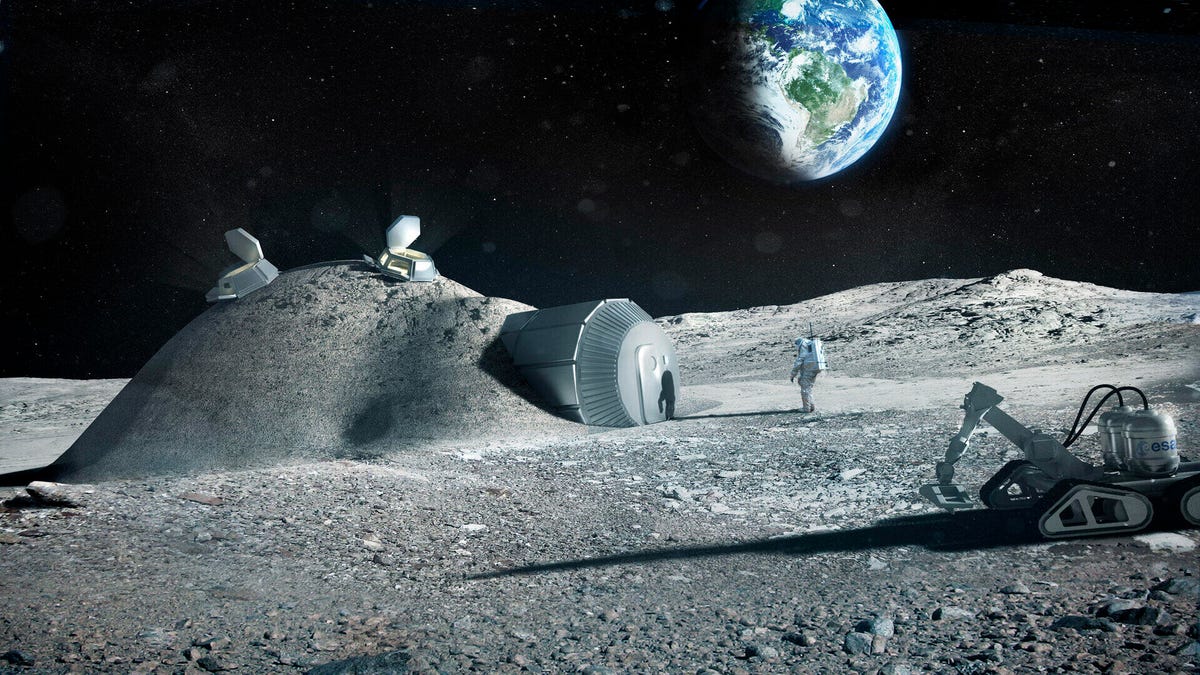White House plan for moon mining wants people of Earth to join forces
President Trump signs an executive order asking all nations to team with the US in going lunar.

A rendering of a possible lunar base.
In the midst of the coronavirus pandemic, the Trump administration issued an executive order Monday calling on the planet's leaders to join forces to extract the natural resources of another world: the moon.
The "Executive Order on Encouraging International Support for the Recovery and Use of Space Resources" is the latest White House step paving the way for NASA to return astronauts to the surface of the moon as part of its Artemis mission.
"It shall be the policy of the United States to encourage international support for the public and private recovery and use of resources in outer space, consistent with applicable law," the order reads.
This isn't a new policy per se. Rather, the goal appears to be laying out the legal framework through which the United States plans to mine the moon in the coming years, and perhaps Mars as well.
The order explicitly rejects the "1979 Moon Treaty," which has never been ratified by the United States, Russia or any of the other main space-faring nations. It basically would require that space resources be governed by new international regulations overseen by the United Nations.
"The order reaffirms US support for the 1967 Outer Space Treaty while continuing to reject the 1979 Moon Agreement," Scott Pace, deputy assistant to the president and executive secretary of the National Space Council, said in a release. "The order further clarifies that the United States does not view outer space as a 'global commons,' and it reinforces the 2015 decision by Congress that Americans should have the right to engage in the commercial exploration, recovery, and use of resources in outer space."
Pace goes on to say that the order "establishes US policy toward the recovery and use of space resources, such as water and certain minerals."
In other words, the kind of things you might want when establishing any sort of permanent presence on the moon or beyond.
The order directs the US secretary of state to seek international partnerships to help in pursuing the development of space resources.
In essence, this new order is a declaration to the world that the United States plans to set up industry on the moon and Mars regardless of what a 40-year-old treaty says, so you may as well join if you're game.
The big question, of course, is when any of this might actually happen. A NASA funding bill now before Congress would push the Artemis moon landing back from its ambitious 2024 timeline to later in the decade. And that proposal came before the coronavirus pandemic disrupted all of humanity's plans for the foreseeable future.
Nonetheless, over 12,000 people have applied to be Artemis astronauts, and if the Trump administration has its way, some of them may end up working as moon miners.

